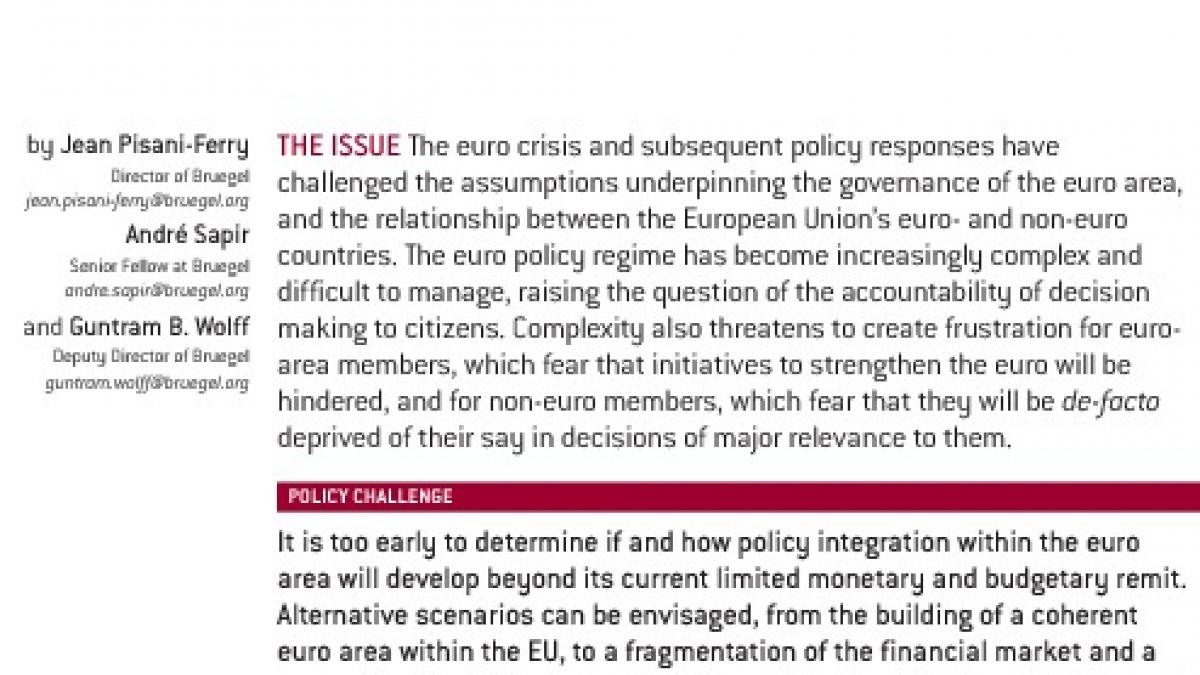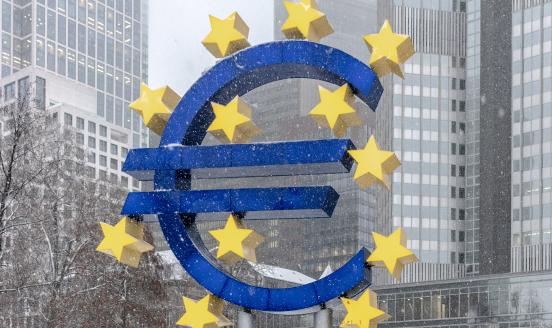The messy rebuilding of Europe
The euro crisis and subsequent policy responses have challenged the assumptions underpinning the euro-area's governance, and the relationship bet

The euro crisis and subsequent policy responses have challenged the assumptions underpinning the governance of the euro area, and the relationship between the European Union’s euro- and non-euro countries. The euro policy regime has become increasingly complex and difficult to manage, raising the question of the accountability of decision making to citizens. Complexity also threatens to create frustration for euro area members, which fear that initiatives to strengthen the euro will be hindered, and for non-euro members, which fear that they will be de-facto deprived of their say in decisions of major relevance to them.
It is too early to determine if and how policy integration within the euro area will develop beyond its current limited monetary and budgetary remit. Alternative scenarios can be envisaged, from the building of a coherent euro area within the EU, to a fragmentation of the financial market and a generalised ‘variable geometry’.
Policy action should be based on the need to:
- Make room for deeper integration within the euro area, beyond the limited remit envisaged in the Lisbon treaty
- Preserve the integrity of the EU27 and its essential governance arrangements
- Ensure equal treatment in the application of common rules
- Ensure that candidates for euro-area membership have a voice in the definition of its rules
- Balance the requirements of legal clarity, accountability and efficiency with the desirability of experimentation through variable geometry
This paper was presented to the Economic and Financial Affairs Ministers of the European Union on 30 March 2012 in Copenhagen.



